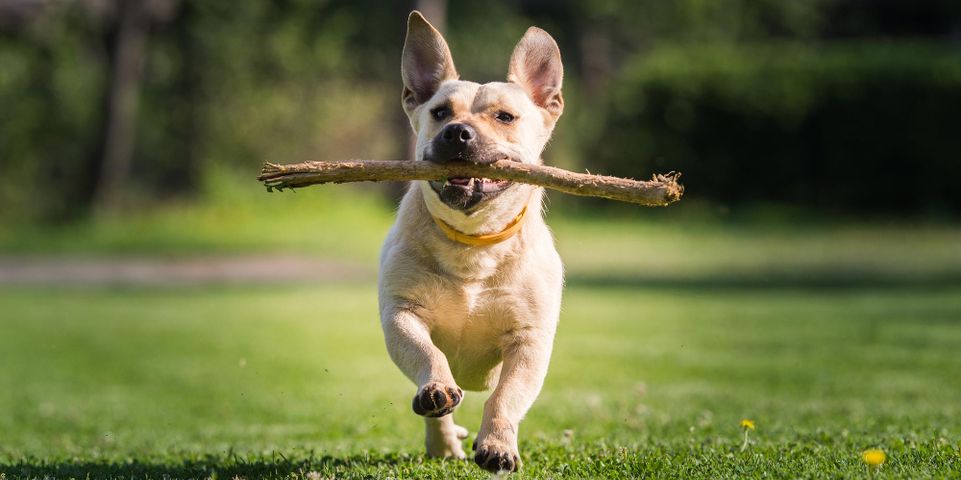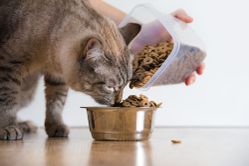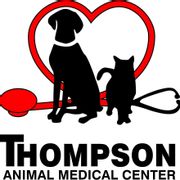
This October 10th, veterinarians and animal lovers across America will unite to raise awareness for National Pet Obesity Awareness Day. Estimated to impact more than half of all cats and dogs, pet obesity is a major health risk that all animal owners should stay aware of. To better help your pet stay well, here are a few important details to know about your four-legged friend’s weight.
Simple Guide to Animal Obesity
How Can Obesity Harm My Pet?
Obese cats and dogs are associated with having a higher risk of heart disease, diabetes, arthritis, kidney dysfunction, and cancer—all serious health problems that can be complicated and expensive to treat. As such, veterinarians strongly urge pet parents to monitor their animal’s size and take steps to prevent excessive weight gain.
What Causes Pet Weight Gain?
 Overeating or consuming unhealthy foods are common reasons that cats and dogs become overweight. Insufficient exercise may also be to blame.
Overeating or consuming unhealthy foods are common reasons that cats and dogs become overweight. Insufficient exercise may also be to blame.
Other health changes—such as growing older or getting spayed or neutered—can also change an animal’s metabolism and reduce the number of calories they need. If diet isn’t adjusted after these events, your pet may be eating more than necessary.
What Can I Do to Manage My Animal’s Weight?
Ask your veterinarian how many daily calories your cat or dog needs based on their breed, age, and other medical conditions. When choosing a pet food, stick to healthy products that aren’t packed with excess fat, sugars, and sodium.
To avoid overfeeding, stick to a strict meal schedule and provide carefully measured portions that fit the animal’s nutritional needs. Also, avoid sharing human food with your companion, as many of these items can be unhealthy or dangerous for animals to eat.
Apart from diet, you can control your pet’s weight by making sure they get at least 30 minutes of exercise a day. For dogs, walking and playing outside are great ways to stay fit. Cats, particularly indoor ones, can use a variety of toys to stay active and keep their bodies in good shape.
How Do I Know If My Cat or Dog is Overweight?
It can be difficult to know how much your pet should weigh, as the ideal amount depends on a variety of factors—such as breed, age, preexisting health conditions, and lifestyle. Fortunately, veterinarians are qualified to monitor your pet’s growth and identify potential weight problems early on.
During your next pet wellness appointment, ask your provider how your animal’s weight is doing and if any changes in diet or exercise are recommended.
Whether you’re concerned about your pet’s weight, behavior, or other symptoms, you can count on the team at Thompson Animal Medical Center to provide the comprehensive care you need. As a fully-equipped animal hospital in La Crosse, WI, this veterinarian can comfortably and conveniently monitor your companion’s growth, provide wellness exams, and pet vaccines, as well as perform emergency procedures. Visit this provider online to learn more about all of their services or call (608) 788-8820 to schedule an appointment.
About the Business
Have a question? Ask the experts!
Send your question

